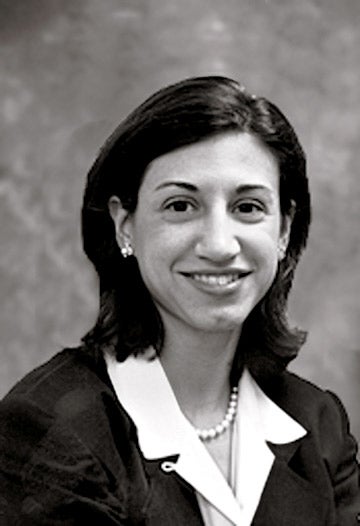An Essay by Rachel S. Arnow-Richman ’95
At the beginning of the last academic year, my third year of tenure-track teaching, I realized that it had been 10 years since I had been in the position that my first-year students were in. The fall of 1992 was not that long ago, but it seems like an eternity in the history of HLS. During my first year of law school, I had not a single female professor (and only one male professor of color), and though I went out of my way to find classes taught by women during my next two years at HLS, I had taken only three by the time I graduated, and one of them was taught by a visitor who did not become a permanent appointment.
In the years since, I have watched with a mixture of glee and sadness to see HLS appoint so many wonderful women scholars to the faculty. With each appointment, I have thought about how much students will benefit and how much more I could have benefited from the instruction and mentoring of more women faculty during my law school years.
The day before Dean Elena Kagan’s appointment was announced, I taught my contracts students Hawkins v. McGee, the chestnut case involving the “hairy hand,” made infamous by the classroom scene in “The Paper Chase.” Before beginning the Socratic ritual, I asked the class if they had seen the film, and discovered that, although it was made 30 years ago, the film remains a rite of passage for entering law students. With that in mind, I took hold of my lapels, cleared my throat dramatically, assumed as terrifying a posture as my 5 feet 4 inches and 110 pounds will allow, and bellowed out, “Ms. Carver, will you stand and recite the case!” Upon which we all, they and I, broke out in tremendous guffaws.
Like all student laughter, the reaction to my gimmick came in part from the break in classroom anxiety that humor always occasions. But I dare say it also came from the comfort my students take in the obvious and welcome fact that I bear no resemblance to Professor Kingsfield. Indeed, the first-year students at my institution have experienced relatively little in common with their “Paper Chase” counterparts. They are part of an entering class that is majority female and is composed of significant numbers of minorities, second-career adults, first-generation college students and other nontraditional students. Of their first-year professors for substantive courses, three out of five have been women.
As to my own laughter, it stemmed partly from seeing my students amused and partly from a feeling of personal satisfaction. Of late I have realized just how much my commitment to teaching has been fueled by a desire to make law school friendlier for women and other historically excluded students. No doubt it is also motivated by a desire somehow to rectify or make up for what was lacking in my own law school experience, if merely in a symbolic way.
I choose the word “symbolic” consciously because it is used so often in describing breakthrough appointments of women and minorities to positions of importance. While I have always applauded such appointments, the concept of their “symbolic” effect had been abstract to me. In hearing about Kagan’s appointment to the deanship, it occurred to me that “symbolic” effects comprise countless personal reactions like my own–some deeply considered, some entirely unconscious, but all of which contain the sense that whatever the public event and however distant it might be, it effects personal meaning for the beholder.
Dean Kagan’s appointment is incredibly meaningful, both to me personally and I am sure to countless other students, alums, lawyers, judges and professors. I thank her for taking on this incredible challenge and wish her the best of luck for a long and successful tenure as dean of Harvard Law School.
Rachel S. Arnow-Richman ’95 is an associate professor at Texas Wesleyan University School of Law.
